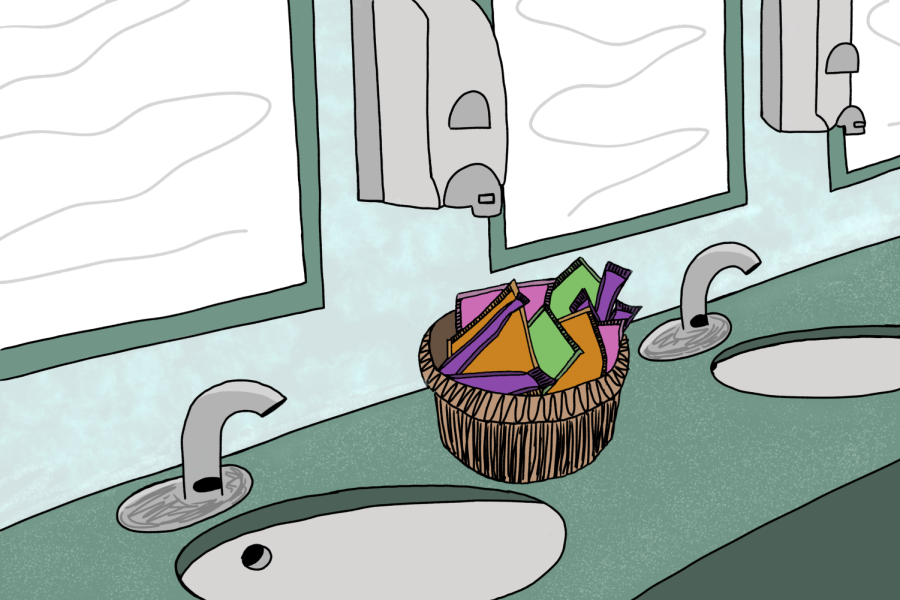UT Should Provide Period Products in Student Spaces
February 12, 2023
College students are people first and scholars second. Only after our basic needs have been met can we thrive academically. With tight schedules and financial constraints, it can be difficult to fulfill these needs.
The University provides many necessary resources, such as water stations and the UT Sleep Center to help students succeed. However, students who menstruate face an added stressor on top of academic concerns and currently lack the support they deserve on campus.
“Having these things that everyone should have access to makes it easier for students to be able to focus on academics,” student government president Leland Murphy said.
Providing free, easily accessible menstrual products in campus restrooms is the University’s next logical step in ensuring student wellbeing. Many plans have tried to implement this necessity, but bringing the issue to select high-traffic spaces on campus, like the Perry-Castañeda Library and Flawn Academic Center, as well as centralizing the implementation are important steps to ensure the plans’ success.
Although different organizations have placed period products in these spaces before, there needs to be a consistent strategy in place to maintain supply resources.
Katherine Drawert, a Plan II and business honors program first-year, started a free menstrual product initiative at her high school. From experience, she rightfully expected that funding is one of the major logistical barriers to making this change happen at UT. But at her high school, Drawert’s initiative overcame this same obstacle.
“You don’t expect people to bring their own toilet paper to school,” Drawert said to the administration. “Why should menstruation, an involuntary bodily function, be handled any differently?”
From financial hurdles to busy schedules, there are a number of reasons that menstruation can limit students’ success on campus. According to a 2021 study in BMC Women’s Health, 14% of college-aged women and one in five first-generation students struggle to afford basic period products.
Other times, students simply start their period unexpectedly and need to leave campus or go home for hygiene products. Failure to prioritize the supply of free menstrual products for students perpetuates the notion that systems are not built for people with periods.
“If I’m physically uncomfortable, I’m a lot less likely to do my work,” Drewart said. “If I am bleeding through or having an uncomfortable experience like that, it does put me at a disadvantage to a male colleague.”
In the interest of equality for menstruating students, the University must prioritize period care initiatives and follow through with their implementation and maintenance. Placing products in student restrooms would be a simple start to make this happen. To proactively mitigate stocking concerns, a QR-code system could be implemented for reporting which product stations need to be replenished.
“It’s very much patchwork,” Murphy said of past period equality initiatives. Groups like student government and UT Outpost have pushed for accessibility in this area, but funding has been sporadic and scattered.
It is the University’s responsibility to make an ongoing commitment to provide for the student body with a plan that is effective and sustainable. Students are never going to stop getting their periods, and that should never stop their learning.
Jackson is a Plan II and journalism first-year from Boerne, Texas














